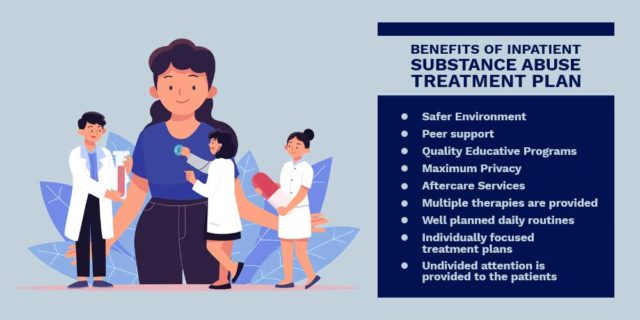Our Narconon Africa Diaries
Our Narconon Africa Diaries
Blog Article
The smart Trick of Narconon Africa That Nobody is Discussing
Table of ContentsGetting The Narconon Africa To Work7 Easy Facts About Narconon Africa ShownThe Definitive Guide for Narconon AfricaExcitement About Narconon AfricaNarconon Africa - An Overview10 Simple Techniques For Narconon AfricaSome Known Details About Narconon Africa
In a collection of papers with Manudeep Bhuller and Katrine V. Lken, we get over these data challenges and the nonrandomness of imprisonment, providing new understandings right into how incarceration affects regression, work, youngsters, and criminal networks - Drug rehab center. Figure 1 Our work researches the effects of incarceration in Norway, a setting with two vital benefitsWe can better connect this details to various other relative, including children and brother or sisters. We have details on co-offending that enables us to map out criminal networks for observed crimes. Second, we can leverage the random project of criminal cases to judges who differ in their propensities to send out defendants to jail.
But some courts send accuseds to jail at a high price, while others are much more forgiving. We measure a judge's stringency as the typical incarceration rate for all various other instances a judge takes care of, after regulating for court and year set impacts, which is the degree of arbitrary project. This quasi-random task of court stringency can be used as an instrument for incarceration, as it strongly predicts the judge's choice in the existing case, yet is uncorrelated with other situation qualities both deliberately and empirically.
The 2-Minute Rule for Narconon Africa
Features of prisoners, including demographics and criminal offense categories, are broadly comparable in Norway and various other countries, consisting of the United States, with the exceptions that the United States homicide price is a lot greater, and race plays a larger function there too. What attracts attention as different, specifically contrasted with the USA, is the jail system.
Figure 2In Norway, the typical time invested in prison is a little over 6 months, which is comparable to most other Western European nations. This contrasts with average United States jail time of nearly 3 years, which remains in big part the factor the United States is an outlier in its imprisonment price compared with the remainder of the globe [Figure 1]
3 Simple Techniques For Narconon Africa
This supplies a lot more separation between small and hard wrongdoers than exists in the United States. There is no overcrowding in Norwegian jails and better individual safety and security, with each prisoner being assigned to their own cell and a greater inmate-to-staff proportion than in the United States (https://narcononza12.creator-spring.com). Jails in Norway additionally use well-funded education, drug treatment, psychological health and wellness, and task training programs
Our study on the results of imprisonment on the culprit, making use of the arbitrary project of judges as an instrument, yields three key findings. Initially, jail time inhibits further criminal habits. We find that imprisonment lowers the possibility that an individual will reoffend within five years by 27 percentage points and lowers the matching number of criminal charges per individual by 10 fees.
The Ultimate Guide To Narconon Africa
We discover sizable declines in reoffending chances and collective charged criminal activities also after defendants are released from jail. Our second outcome is that prejudice because of selection on unobservable specific characteristics, if disregarded, leads to the incorrect final thought that time spent behind bars is criminogenic. If we just contrast criminal accuseds sentenced versus those not sent to jail, we find favorable associations in between incarceration and succeeding criminal activity.
This stands in contrast to our evaluation based on the arbitrary project of courts, which locates an opposite-signed outcome. Third, the reduction in crime is driven by individuals that were not working before imprisonment. Amongst these people, imprisonment raises participation in programs guided at improving employability and minimizing regression, and this ultimately increases work and profits while discouraging criminal behavior.

Jail time causes a 34 portion factor rise in engagement in work training programs for the previously nonemployed, and within 5 years their work rate increases by 40 percentage factors. At the very same time, the probability of reoffending within five years is reduced by 46 percent factors, and there is a decrease of 22 in the average number of criminal charges.
The Of Narconon Africa

A possible description for the distinction is that Norway's jail system differs markedly, both in regards to prison-term size and jail problems, from the United States prison system. While understanding the effects of imprisonment on the culprit is a vital initial step, catching spillover results is likewise essential for examining criminal justice policy and making efficient jail systems.
Some Known Incorrect Statements About Narconon Africa

Ordinary least squares estimates disclose that children of incarcerated dads are 1 portion point most likely to be billed with a crime, about a mean of 13 percent, and reveal no result on college grades. Using our judge stringency tool, we find no statistical evidence that a daddy's imprisonment impacts a child's very own criminal offense or college grades, however we are unable to dismiss modest-sized effects.
The Single Strategy To Use For Narconon Africa
We define criminal groups based on network web links to previous criminal cases. Look At This Our analysis returns three main searchings for. When a criminal network member is incarcerated, their peers' possibility of being billed with a future crime decreases by 51 percent factors over the next 4 years. Also, having an older bro jailed decreases the likelihood his younger bro will be billed with a criminal activity by 32 percentage factors over the next 4 years.
Report this page